MEEM Foundation celebrated its 10th Foundation Day on Thursday at the India Islamic Cultural Centre, marking a decade of social initiatives and progress. The event was graced by Chandra Shekhar Azad, Member of Parliament and National President of the Azad Samaj Party, as the chief guest. Alongside him, nine distinguished guests of honor attended the event, including Aasif Mujtaba, Founder & Director of Miles2Smile; Firdos Khan, former Member of the Delhi Commission for Women; Safoora Zargar, a prominent social activist; Dr. Mohd Faijullah Khan, Associate Professor at IASE, Jamia Millia Islamia; Abdul Majid Nizami, Group Editor of Roznama Rastriya Sahara; Mohammad Adeeb, former Rajya Sabha Member; and Dr. Faizul Hasan, Former President of the AMU Student Union

The event began with the qur’anic recitation of Asif Iqbal, a social activist followed by the powerful PowerPoint presentation by Mr. Farman Ahmad, President, MEER Foundation, emphasizing various activates taken by MEEM in its decade long journey.
The Speaker’s Words
The first speaker, Aasif Mujtaba taking the stage to speak about the importance of the MEEM Foundation. Mujtaba highlighted that MEEM is not just an organization, but a thought—a vision for change. He stated, “MEEM is a thought that you can get up and work, you can bring about change.”
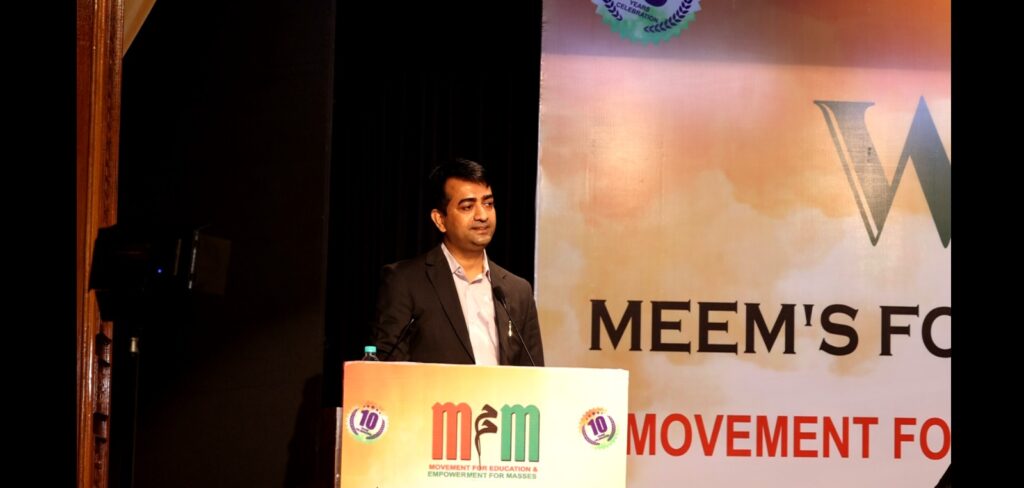
His words emphasized the foundation’s core belief in active participation and the collective effort to bring about meaningful transformation in society.
Mujtaba also touched upon the critical issue of intellectual bankruptcy, a concept he believes plagues society today.
“The problem is not that an innocent person is being killed, or that a well-thought-out conspiracy is being carried out. The real problem is that we are going through continuous intellectual bankruptcy,” Mujtaba said.
According to him, intellectual bankruptcy is a serious challenge that prevents progress and holds back the community from reaching its potential. He further added, “A group whose intellectual level is bankrupt cannot be tolerated.”
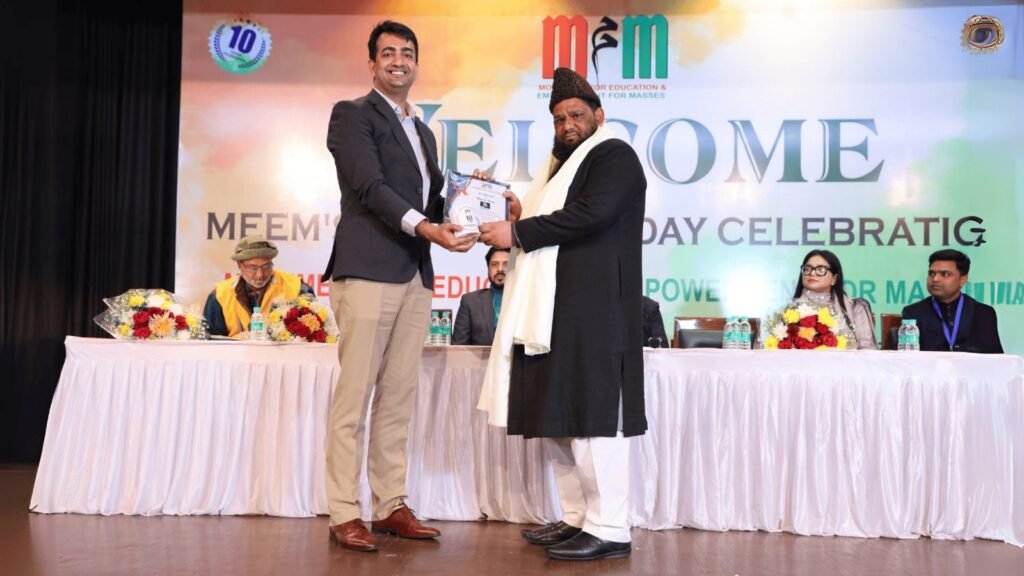
Following Mujtaba, Firdos Khan took the stage to discuss the lack of empowerment among Muslim women. She opined that Muslim women, who often face societal and cultural barriers, require a positive intervention process that would allow them to thrive and contribute more significantly to society.
Safoora Zargar, another influential speaker, highlighted the growing concerns about the shrinking political space for Muslim women. She spoke passionately about the importance of Muslim women’s participation in public life and politics. Zargar urged the community to encourage and support Muslim women in pursuing political and social avenues to ensure their voices are heard and their rights protected. She stressed that the absence of Muslim women in political spaces not only limits their opportunities but also deprives society of diverse perspectives and voices.
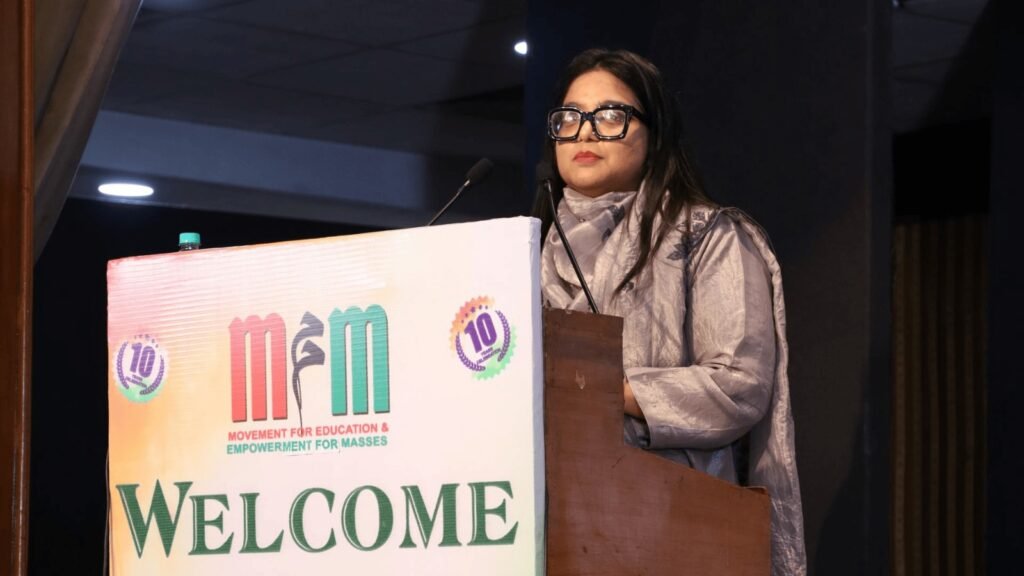
The next speaker, Faij ullah khan, focused on the urgent need for more consolidated efforts toward increasing education and enrollment among the Muslim masses. Islam argued that education is the key to empowerment and that without focused efforts to address educational gaps, the Muslim community would continue to lag behind in various socio-economic areas. His call for educational reform was aimed at encouraging both governmental and non-governmental entities to work together to improve educational access for the Muslim community.
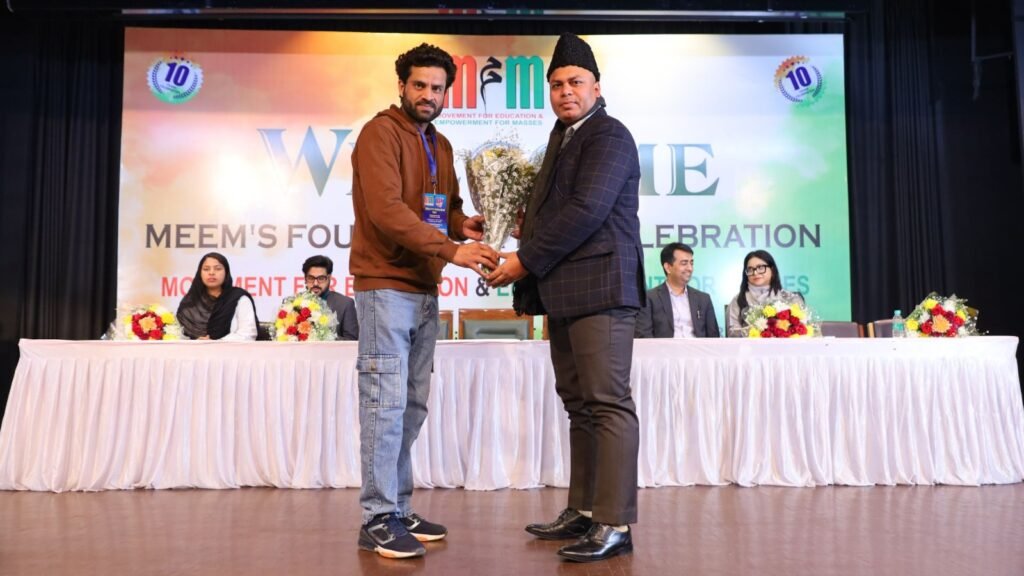
Mohammad Adeeb, the sixth speaker of the day, delivered a deeply emotional speech, expressing his pain over the difficulties faced by Muslims in India. Adeeb’s voice trembled as he shared his personal anguish over the challenges that the community faces, from discrimination to socio-political marginalization. His heartfelt address was filled with sorrow, and the pain in his voice left a lasting impression on the audience, who shared in his distress over the plight of the Muslim community in India.
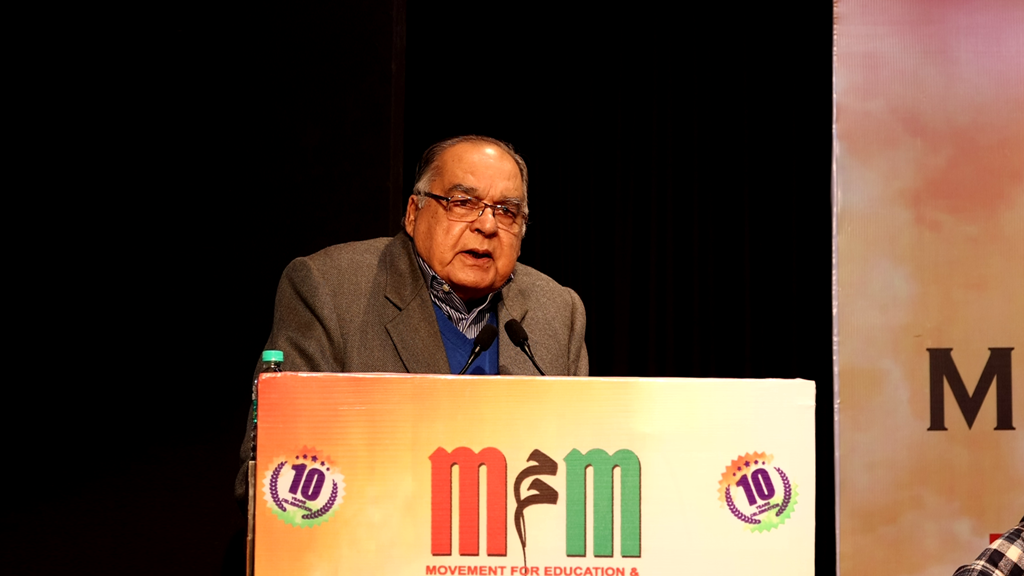
As the event drew to a close, Faizul Hasan delivered the vote of thanks. He expressed gratitude to all the speakers, guests, and attendees for their participation, and concluded the event with a call to action. His words were a reminder that the work of the MEEM Foundation is ongoing, and that the fight for social justice, empowerment, and equality must continue.
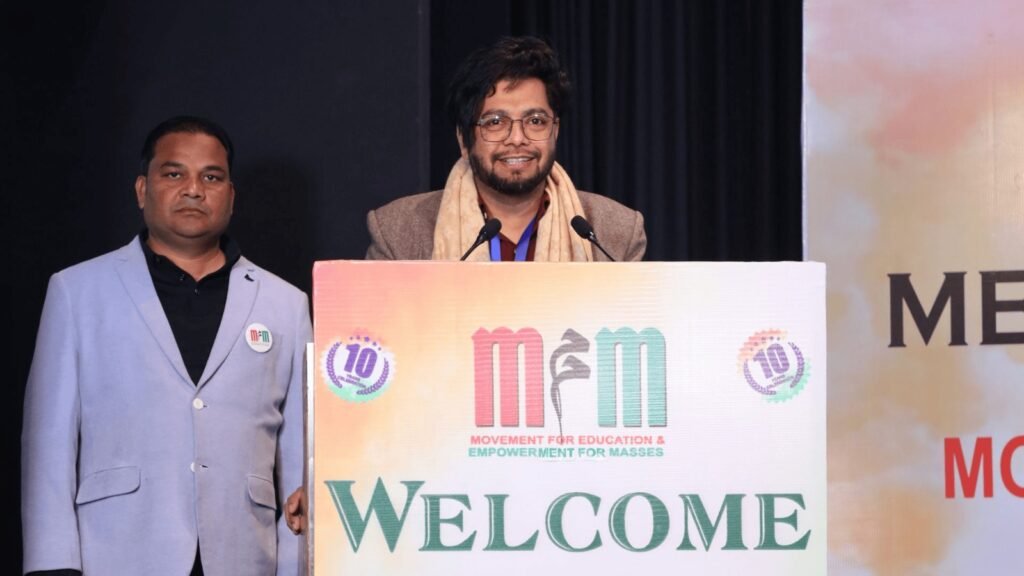
The 10th Foundation Day of the MEEM Foundation was a powerful event that highlighted critical issues facing the Muslim community, with a particular focus on women’s empowerment, education, and political participation. It was a reminder of the importance of intellectual engagement and collective action to bring about meaningful change.
What is MEEM?
The Movement for Education and Empowerment for Masses (MEEM) was initiated in 2013 when a group of Facebook friends united with the goal of giving back to society. Inspired by the philosophy of fostering peace and harmony in the world, they came together to create a platform focused on education and empowerment. Their mission was to make a positive impact on underserved communities, providing them with the tools and opportunities needed for growth and success. Through their efforts, MEEM aims to promote social equality and contribute to building a more inclusive and harmonious world.
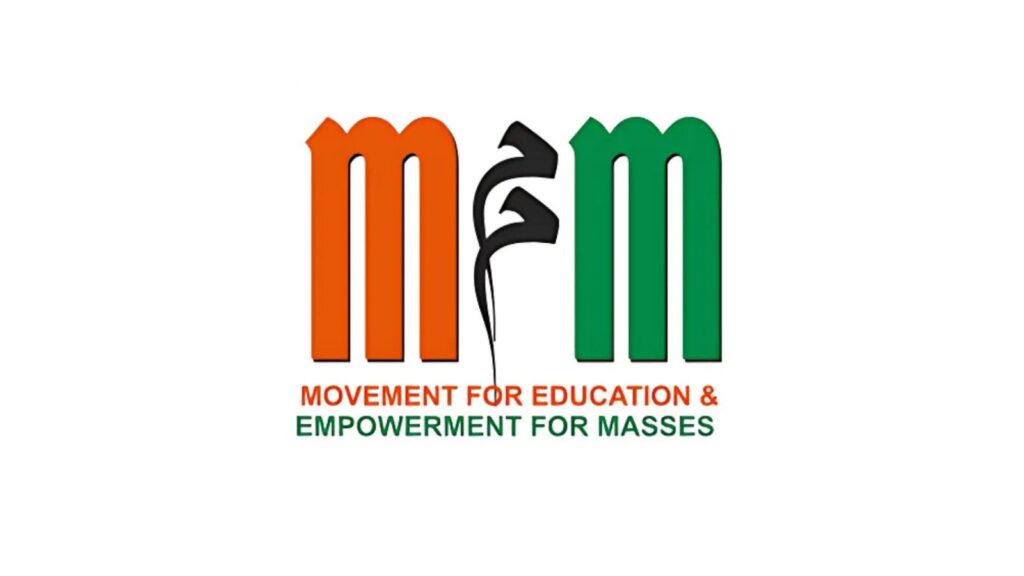
MEEM’s mission is to create a world where every individual has access to education and can live with dignity. The foundation is dedicated to empowering underprivileged sections of society, including children, youth, and women, by providing them with relevant education, innovative healthcare, and livelihood programs. Through these initiatives, MEEM aims to uplift marginalized communities, offering them the resources and opportunities needed to achieve a better quality of life and contribute meaningfully to society.
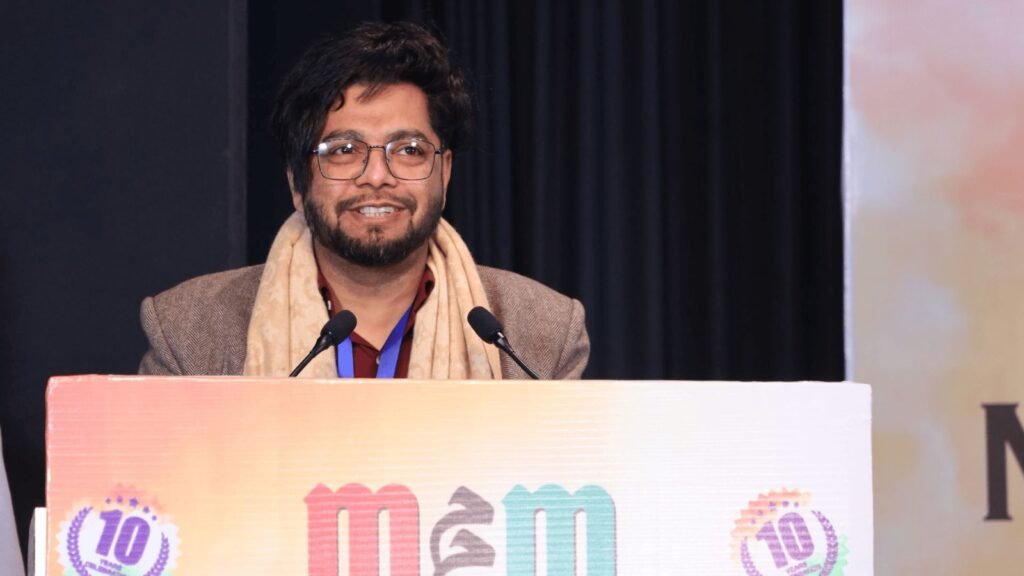
MEEM envision the upliftment of society by empowering the marginalized sections through Education, Employment, and Social Justice. Their goal is to create an inclusive environment where every individual has equal opportunities to thrive and contribute to the collective well-being of society. Through these core pillars, we aim to break barriers, reduce inequalities, and foster a more equitable and just world.


